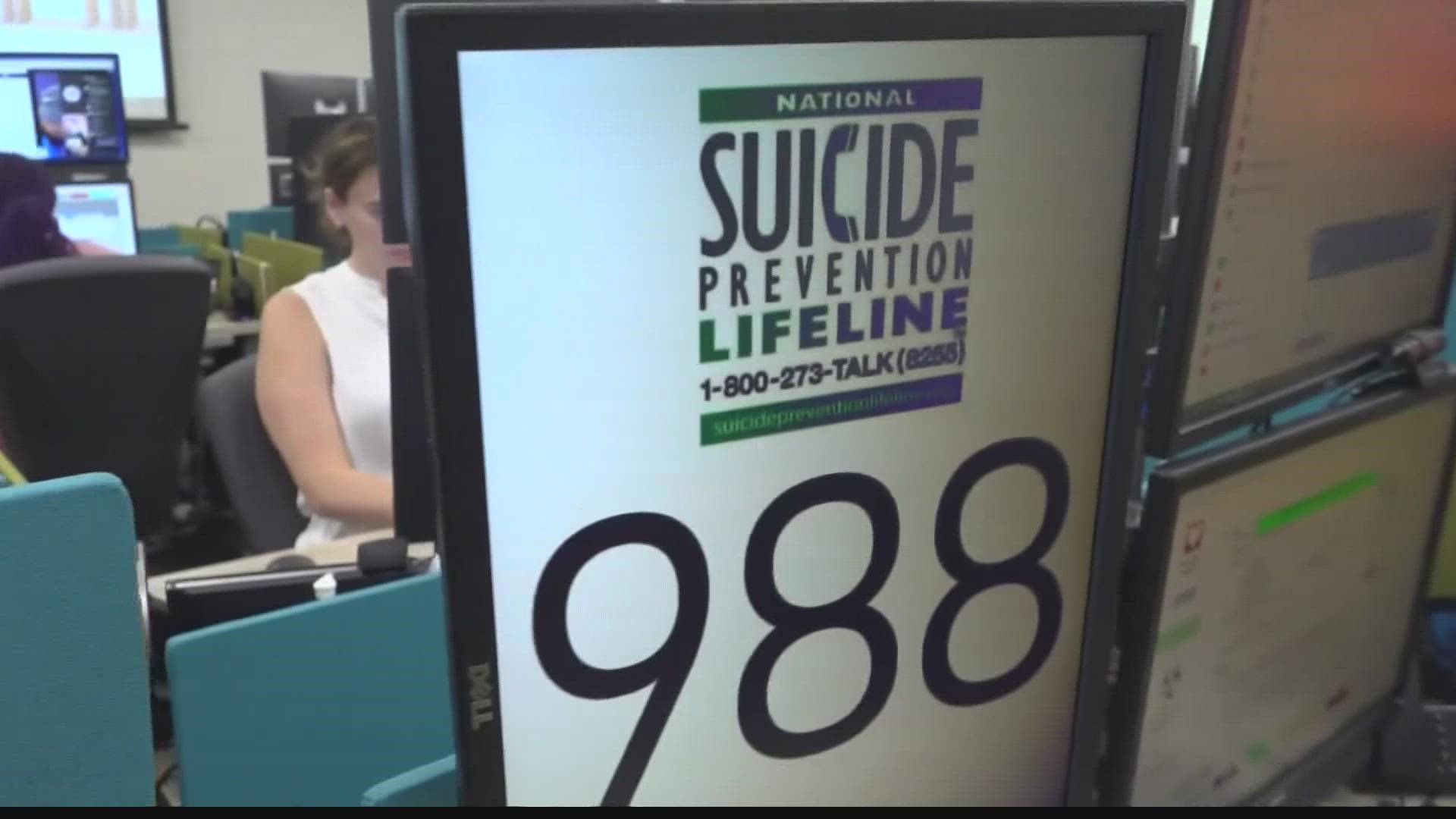JACKSONVILLE, Fla — The new suicide hotline number is being called just the 'tip of the spear' when it comes to connecting you to mental healthcare resources in Northeast Florida.
The hotline has now been live for almost two months and at United Way of Northeast Florida they've seen a 25 percent increase in call volume. The head of basic needs there says building up mental healthcare only starts with 988.
"988 helps people today," said Jeff Winkler, head of basic needs at United Way of Northeast Florida. "How can we make sure that we're getting them on the path where they can get help tomorrow and beyond?"
That's a question that Winkler says sets Jacksonville apart because it's a major focus for United Way with the 988 suicide hotline roll-out. This is the first time they'll have a team of 10 people focus solely on crisis and suicide.
First Coast News asked Winkler if there are enough mental healthcare resources on the First Coast.
"There's enough mental healthcare-providing organizations," he said. "There's not enough individuals to provide the work."
You may remember First Coast News's stories on this with children. In January Wolfson Children's Hospital reported a 200 percent increase in requests for services like seeing a psychiatrist and a 300 percent increase in need for emergency mental healthcare services for kids during the pandemic.
A spokesperson says now the percentage has decreased some for inpatient services, but not for outpatient services. She says outpatient services "continue to grow significantly."
Overall, the number of deaths from suicide in Duval County is higher than the number statewide.
Winkler says a 988 caller will either be handed off on the call to a mental healthcare organization, the organization will contact the caller within 24 hours of their 988 call, or the caller will be given ways to get help on their own. These are for situations that can be de-escalated by workers on the other end of the line.
"If we do a lethality assessment and we determine that there's an imminent threat of harm to the individual or to other individuals then we have to contact JSO," Winkler said.
You may have heard about backlash over this online. Winkler says though most calls to the 988 hotline can be de-escalated, some involve police.
"Only about 2.3 percent of our calls are ones that we escalate to JSO and 911," he said. "Those are the cases that have the potential of becoming Baker Act."
The Baker Act allows Floridians to put a family member in a treatment center involuntarily.
More than one in five people shot and killed by police have mental illnesses, according to a Washington Post database.
Winkler says it's up to JSO how they respond to a call and that they can send their mobile response team of trained mental health professionals. He does not want those who need help to be discouraged from calling 988.
"The other 97.7 percent of the calls that we take are really meant to provide the de-escalation services and connect those individuals with other nonprofit or mental health providers," Winkler said.
There have also been concerns over 988 using geolocation. The FCC states unlike 911, 988 does not have geolocation services enabled.

